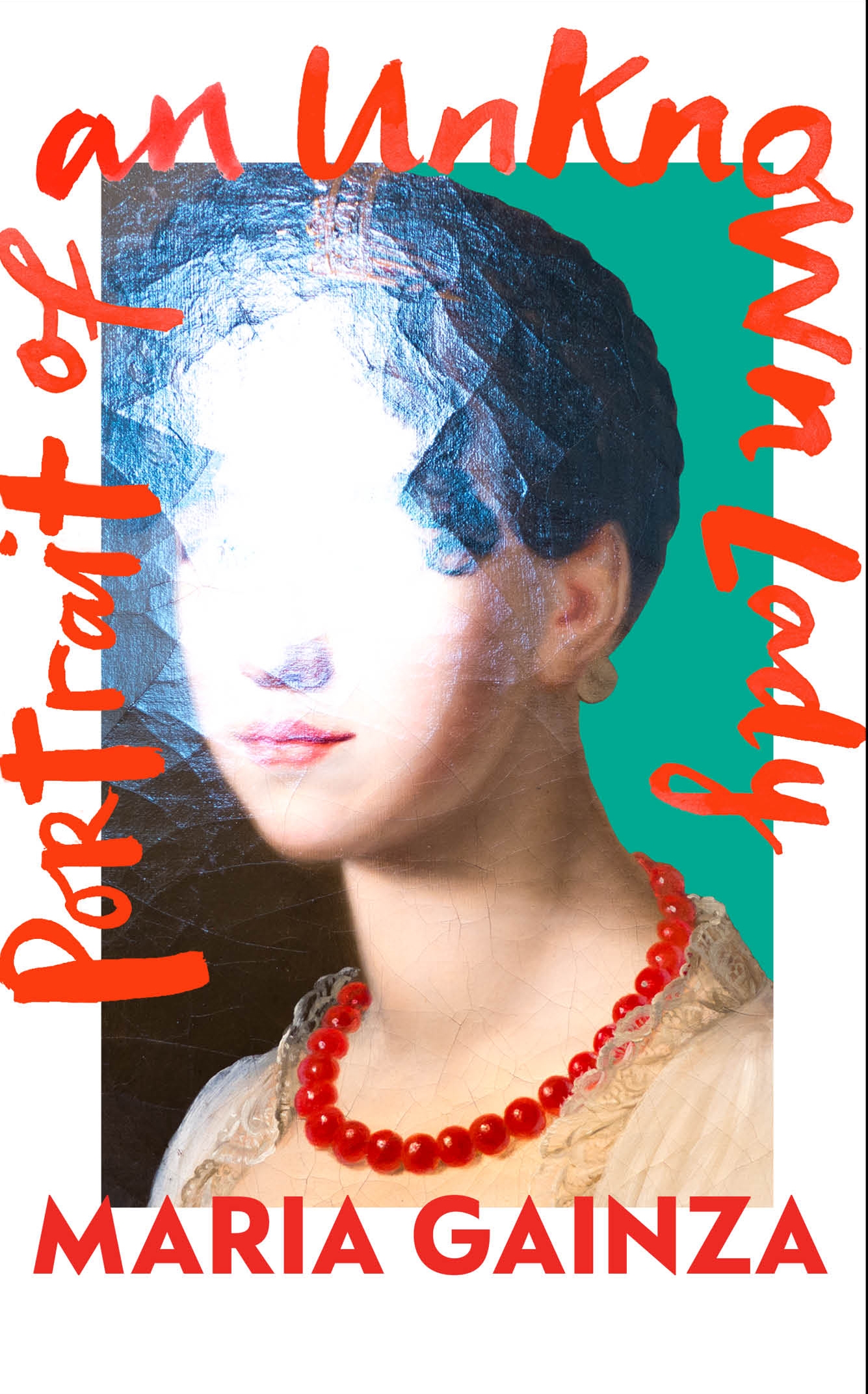María Gainza: Portrait of an Unknown Lady review – queens of the unreal | reviews, news & interviews
María Gainza: Portrait of an Unknown Lady review – queens of the unreal
María Gainza: Portrait of an Unknown Lady review – queens of the unreal
Smoke and mirrors in the Buenos Aires art world

It’s no surprise that the theme of fakes and forgery appeals so much to writers, who traffic in plausible illusions and often believe (in María Gainza’s words) that truth is “just another well-told story”.
Our narrator is a sardonic Buenos Aires critic who checks into a city hotel under an assumed name with a story – or rather several stories – of art-world skullduggery to tell. Her friendship with the elegant and mysterious, chain-smoking Enriqueta, “a work of art in her own right” who authenticates paintings for a bank, has opened the door to a band of artist-tricksters active in the Buenos Aires of the 1960s. Based in a bohemian flop-house, the Hotel Melancholical, they aimed to strike a blow against bourgeois pretence and rapacity by “cheating the rich”. The merry pranksters specialised in high-society portraits supposedly painted by Mariette Lydis. Now, Lydis really existed. A good chunk of the book – framed as entries to an auction catalogue – engagingly traces her passage from pre-war Vienna via avant-garde circles in London and Paris to Buenos Aires, where she lived (until 1970) and flourished after Europe “slid off her like the shed skin of a reptile”. Lydis’s life-partner, as we learn, was Erica Marx: a granddaughter of Karl.
 In Portrait of an Unknown Lady the baton – or brush – of counterfeiting with a conscience passes from “one queen of making things up” to another. The resourceful Lydis restlessly reinvents herself, and her style; Enriqueta validates the imitations that help siphon funds from the elite towards the counter-cultural mavericks; finally, the narrator’s twisting path leads in the direction of a gifted, shadowy “original forger” known as Renée. Given her “aura of a legend”, as a shape-shifting magician who looks in a rare blurry photo like a “Valkyrie stuffed into a tailored dress”, the quest for Renée promises a satisfying end to Gainza’s upscale romp. Sadly, the hunt, and the plot, peters out a bit. A plodding legalistic detour charts another case of forgery, with a thick impasto of editorial reflections from the narrator on art, truth and lies. These tend to feel sludgy when they should be crisp.
In Portrait of an Unknown Lady the baton – or brush – of counterfeiting with a conscience passes from “one queen of making things up” to another. The resourceful Lydis restlessly reinvents herself, and her style; Enriqueta validates the imitations that help siphon funds from the elite towards the counter-cultural mavericks; finally, the narrator’s twisting path leads in the direction of a gifted, shadowy “original forger” known as Renée. Given her “aura of a legend”, as a shape-shifting magician who looks in a rare blurry photo like a “Valkyrie stuffed into a tailored dress”, the quest for Renée promises a satisfying end to Gainza’s upscale romp. Sadly, the hunt, and the plot, peters out a bit. A plodding legalistic detour charts another case of forgery, with a thick impasto of editorial reflections from the narrator on art, truth and lies. These tend to feel sludgy when they should be crisp.
Thomas Bunstead’s translation smartly juggles the different registers of Gainza’s prose – with its mimicry of critical art-speak, dealers’ jargon, law-court legalese – but the sheer variety of tone itself hints at a softening of focus and outline. I turned from this Portrait sensing that a keen mind and a sharp eye had not quite fixed the form that would deliver a balanced composition. Perhaps the protean, enigmatic Mariette Lydis deserved a novel of her own.
- Portrait of an Unknown Lady by María Gainza, translated by Thomas Bunstead (Harvill Secker, £14.99)
rating
Explore topics
Share this article
The future of Arts Journalism
You can stop theartsdesk.com closing!
We urgently need financing to survive. Our fundraising drive has thus far raised £49,000 but we need to reach £100,000 or we will be forced to close. Please contribute here: https://gofund.me/c3f6033d
And if you can forward this information to anyone who might assist, we’d be grateful.

Subscribe to theartsdesk.com
Thank you for continuing to read our work on theartsdesk.com. For unlimited access to every article in its entirety, including our archive of more than 15,000 pieces, we're asking for £5 per month or £40 per year. We feel it's a very good deal, and hope you do too.
To take a subscription now simply click here.
And if you're looking for that extra gift for a friend or family member, why not treat them to a theartsdesk.com gift subscription?
more Books
 'We are bowled over!' Thank you for your messages of love and support
Much-appreciated words of commendation from readers and the cultural community
'We are bowled over!' Thank you for your messages of love and support
Much-appreciated words of commendation from readers and the cultural community
 Justin Lewis: Into the Groove review - fun and fact-filled trip through Eighties pop
Month by month journey through a decade gives insights into ordinary people’s lives
Justin Lewis: Into the Groove review - fun and fact-filled trip through Eighties pop
Month by month journey through a decade gives insights into ordinary people’s lives
 Joanna Pocock: Greyhound review - on the road again
A writer retraces her steps to furrow a deeper path through modern America
Joanna Pocock: Greyhound review - on the road again
A writer retraces her steps to furrow a deeper path through modern America
 Mark Hussey: Mrs Dalloway - Biography of a Novel review - echoes across crises
On the centenary of the work's publication an insightful book shows its prescience
Mark Hussey: Mrs Dalloway - Biography of a Novel review - echoes across crises
On the centenary of the work's publication an insightful book shows its prescience
 Frances Wilson: Electric Spark - The Enigma of Muriel Spark review - the matter of fact
Frances Wilson employs her full artistic power to keep pace with Spark’s fantastic and fugitive life
Frances Wilson: Electric Spark - The Enigma of Muriel Spark review - the matter of fact
Frances Wilson employs her full artistic power to keep pace with Spark’s fantastic and fugitive life
 Elizabeth Alker: Everything We Do is Music review - Prokofiev goes pop
A compelling journey into a surprising musical kinship
Elizabeth Alker: Everything We Do is Music review - Prokofiev goes pop
A compelling journey into a surprising musical kinship
 Natalia Ginzburg: The City and the House review - a dying art
Dick Davis renders this analogue love-letter in polyphonic English
Natalia Ginzburg: The City and the House review - a dying art
Dick Davis renders this analogue love-letter in polyphonic English
 Tom Raworth: Cancer review - truthfulness
A 'lost' book reconfirms Raworth’s legacy as one of the great lyric poets
Tom Raworth: Cancer review - truthfulness
A 'lost' book reconfirms Raworth’s legacy as one of the great lyric poets
 Ian Leslie: John and Paul - A Love Story in Songs review - help!
Ian Leslie loses himself in amateur psychology, and fatally misreads The Beatles
Ian Leslie: John and Paul - A Love Story in Songs review - help!
Ian Leslie loses himself in amateur psychology, and fatally misreads The Beatles
 Samuel Arbesman: The Magic of Code review - the spark ages
A wide-eyed take on our digital world can’t quite dispel the dangers
Samuel Arbesman: The Magic of Code review - the spark ages
A wide-eyed take on our digital world can’t quite dispel the dangers
 Zsuzsanna Gahse: Mountainish review - seeking refuge
Notes on danger and dialogue in the shadow of the Swiss Alps
Zsuzsanna Gahse: Mountainish review - seeking refuge
Notes on danger and dialogue in the shadow of the Swiss Alps
 Patrick McGilligan: Woody Allen - A Travesty of a Mockery of a Sham review - New York stories
Fair-minded Woody Allen biography covers all bases
Patrick McGilligan: Woody Allen - A Travesty of a Mockery of a Sham review - New York stories
Fair-minded Woody Allen biography covers all bases

Add comment